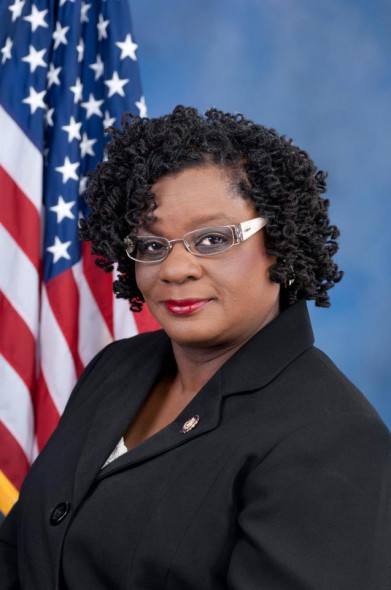Marquette Law School’s Water Law and Policy Initiative to host Congresswoman Moore for a conversation on Wisconsin’s lead pipe problem, April 5
MILWAUKEE — Marquette University Law School will host U.S. Rep. Gwen Moore for a special conversation, “Water Law: A Federal Perspective on Wisconsin’s Lead Pipe Problem,” on Wednesday, April 5, at 12:15 p.m. at Eckstein Hall, 1215 W. Michigan St.
The conversation with Moore will explore the problem of lead service lines in Wisconsin’s water distribution systems and the possibility of federal involvement and funding to help address the issue. Professor David Strifling, director of Marquette Law School’s Water Law and Policy Initiative, will moderate the conversation. Strifling and law students will also present the findings from their recent survey of public water systems on various approaches to Wisconsin’s lead pipe problem.
The program is open to members of the public at no cost; registration is required and available online. Members of the media who are interested in attending should contact Kevin Conway, associate director of university communication, at kevin.m.conway@marquette.edu.
Moore was elected to represent Wisconsin’s 4th Congressional District in 2004, becoming the first African American elected to Congress from the State of Wisconsin. Her district represents much of Milwaukee County. She is a member of the House Ways and Means Committee and the Joint Economic Committee. She is also an active member on the Democratic Women’s Caucus, Congressional Progressive Caucus, LGBT Equality Caucus, Congressional Black Caucus, the Great Lakes Caucus, and the Democratic Steering and Policy Committee.
Through public programming such as the Marquette Law School Poll, “On the Issues” conversations with newsmakers, public lectures by leading scholars, conferences on issues of public significance, and the work of its Lubar Center for Public Policy Research and Civic Education, Marquette Law School seeks to advance civil discourse about important law and public policy matters.
NOTE: This press release was submitted to Urban Milwaukee and was not written by an Urban Milwaukee writer. While it is believed to be reliable, Urban Milwaukee does not guarantee its accuracy or completeness.
More about the Lead Crisis
- Rep. Madison Proposes Restoring Local Control Over Lead Inspections - State Rep. Darrin Madison - Jan 6th, 2026
- $43 Million Later, MPS Says Classrooms Are Safe From Lead Dust - Corrinne Hess - Dec 18th, 2025
- MPS Buildings Cleared of Lead-Paint Risks after 10-Plus Months of Work - Milwaukee Public Schools - Dec 17th, 2025
- Wisconsin Moves to Require Lead Service Lines Replaced By 2037 - Danielle Kaeding - Dec 11th, 2025
- Gov. Evers, DNR Announce More Than $159 Million to Ensure Clean, Safe Drinking Water for Wisconsinites in 29 Municipalities - Gov. Tony Evers - Dec 10th, 2025
- EPA Announces $3 Billion in New Funding for States to Reduce Lead in Drinking Water - U.S. Environmental Protection Agency - Nov 25th, 2025
- Wisconsin Communities Get $282 Million for Drinking Water Projects - Danielle Kaeding - Nov 19th, 2025
- MKE County: County Launches Lead Abatement Program - Graham Kilmer - Nov 9th, 2025
- Milwaukee County Launches Lead Remediation Program to Reduce Lead-Based Paint Hazards in Homes in Suburban Communities - David Crowley - Nov 5th, 2025
- Wisconsin Improves Child Lead Testing Rates, Urges Continued Testing and At-Home Prevention - Wisconsin Department of Health Services - Oct 21st, 2025
Read more about Lead Crisis here
Mentioned in This Press Release
Recent Press Releases by Marquette University
New Marquette Law School Poll finds large majority of Wisconsin voters not yet tuned in to who is running in major 2026 elections
Oct 29th, 2025 by Marquette UniversityNo candidate has established strong position in public favorability in governor, state Supreme Court races; large majorities of voters undecided
New Marquette Law School National Survey Finds Large Majority Think Political Violence is a Big Problem, But With Sharp Partisan Differences
Oct 1st, 2025 by Marquette UniversityAmericans are overall pessimistic on reducing intense political conflict; half of those polled say heated language by leaders makes violence more likely























